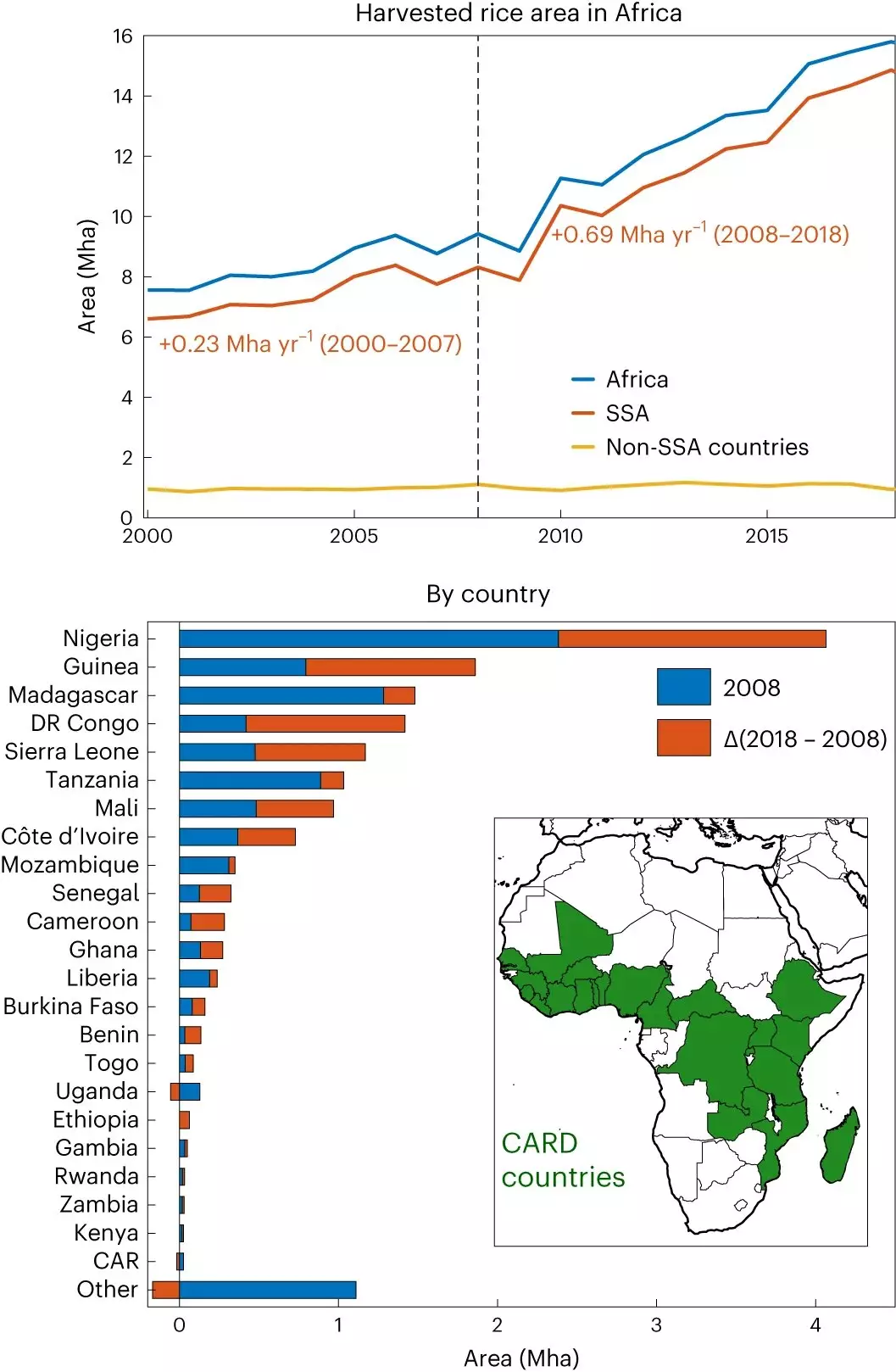Rice farming in sub-Saharan Africa has seen a significant increase in production over the past decade, resulting in a rise in methane emissions. A team of engineers and atmospheric scientists at Harvard University, together with a colleague from the California Institute of Technology’s Jet Propulsion Laboratory, conducted a study to determine the extent of this increase and its implications for global warming.
Methane is the second most important greenhouse gas, surpassing carbon dioxide in terms of radiative properties. Although it is emitted in smaller quantities compared to CO2, methane has a greater ability to trap heat in the atmosphere, exacerbating the effects of global warming. Agriculture activities contribute to approximately 25% of all human-caused methane emissions, with rice farming being a major contributor.
Rice production in sub-Saharan Africa has experienced a doubling in growth from 2008 to 2018, resulting in several consequences. On the positive side, increased rice production has contributed to addressing food security issues, providing approximately 9% of the continent’s caloric intake. However, the negative impact on the environment cannot be ignored.
Growing rice involves various activities that release large amounts of methane into the atmosphere. Irrigation, flooding of fields, burning of rice fields, and harvesting all contribute to the emission of methane. To assess the impact of increased rice production in Africa, the research team recalculated methane emissions based on accurate data regarding rice-growing extent and the number of days rice fields emit methane.
The researchers discovered that the rise in rice production in Africa accounted for approximately 31% of the overall increase in methane emissions for the continent between 2006 and 2017. Furthermore, it contributed to 7% of the global rise in methane emissions during the same period. These findings highlight the significant role that rice farming plays in exacerbating climate change.
The increased methane emissions from rice farming in Africa have far-reaching consequences for the environment. Methane is a potent greenhouse gas, with a heat-trapping potential several times greater than that of carbon dioxide. Its release into the atmosphere contributes to the warming of the planet, leading to adverse effects such as rising sea levels, extreme weather events, and disruptions in ecosystems.
To mitigate the environmental impact of rice farming, sustainable practices need to be adopted. Implementing water management techniques, such as alternative irrigation methods and reducing water usage, can significantly reduce methane emissions. Additionally, transitioning to more efficient rice production systems and exploring the use of innovative technologies can help minimize environmental harm.
The increase in rice farming in sub-Saharan Africa has resulted in a significant rise in methane emissions. As one of the largest contributors to global warming, methane poses a severe threat to the planet’s climate stability. Acknowledging this issue and implementing sustainable practices is crucial to ensure a more environmentally friendly future. By addressing the environmental consequences of rice farming, we can take a step towards mitigating the effects of climate change and preserving our planet for future generations.


Leave a Reply